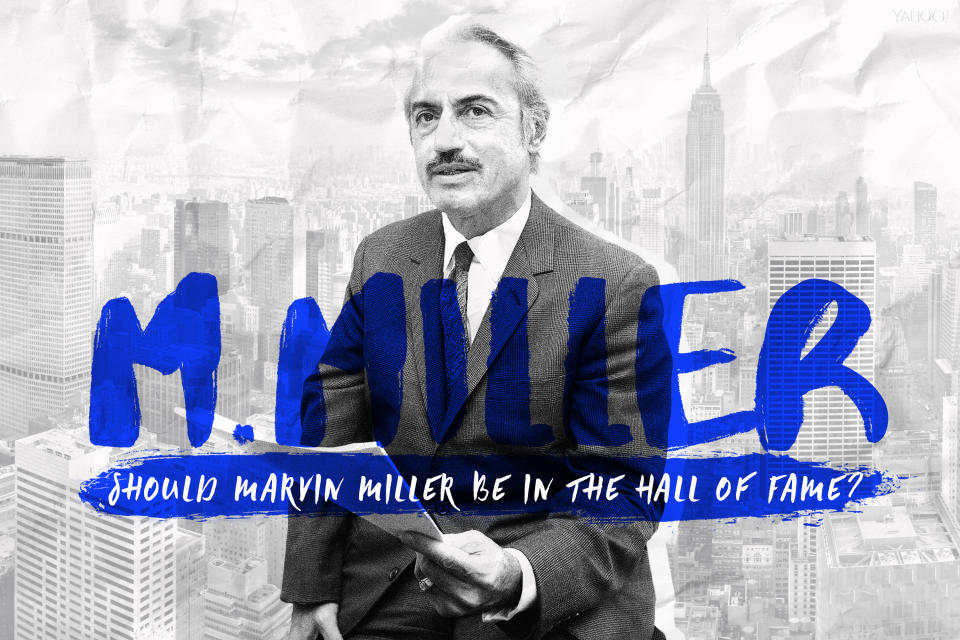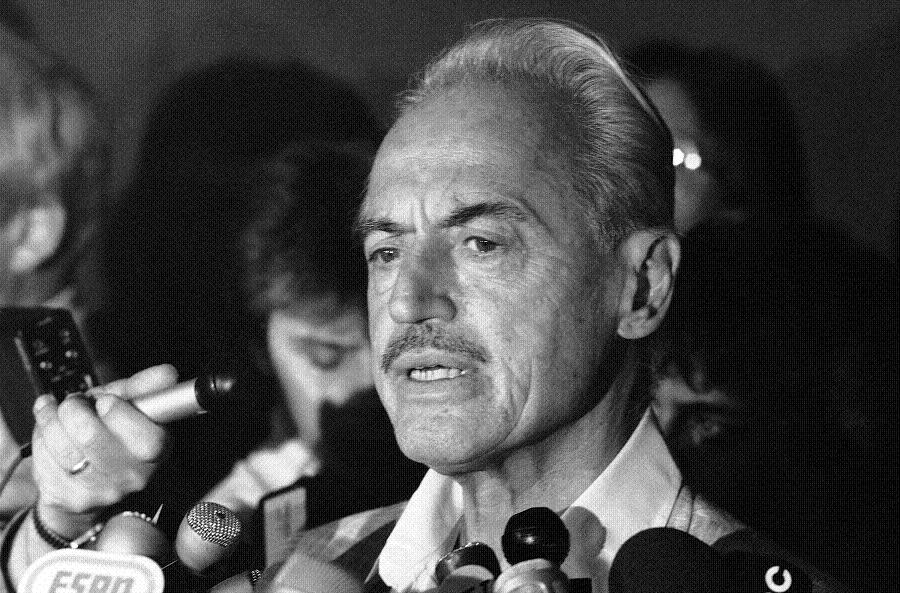Should Marvin Miller be in the Hall of Fame?
Editor’s note: This is the fourth installment of a daily series looking at players on the Modern Era Hall of Fame ballot, which will be voted on Dec. 10. We’ll look at the cases of all 10 people on the ballot and offer our takes on their candidacy.
Marvin Miller has done more to change baseball than just about any one individual in the game’s history. Some have even compared his contributions to those of Jackie Robinson, which is the highest praise we can imagine. Yet for some reason, the former executive director of the Major League Baseball Players Association (MLBPA) has been shunned every time his name has appeared on a Hall of Fame ballot.
Perhaps that will change now that Miller’s case will be reviewed by a different committee. Miller is one of 10 people to be included on the Modern Era Hall of Fame ballot. Of the 10, Miller is the only non-player on the list. Yet it seems he has the strongest case to get in if this committee is serious about acknowledging a figure critical in shaping the landscape of baseball.
As the leader of the MLBPA from 1966–82, Miller helped turn the players’ union into just that, a union that truly put the players best interests first. He never toed the line and was never comfortable allowing the league and owners to dictate the game. His willingness to challenge a system that gave the players no say in where they played or how much they earned, helped turn the union into a determined and more importantly a thriving labor force.
The sad part is, if Miller were to be elected now, he would go in posthumously. He died in 2012 at the age of 95. His dying wish was to receive this honor, which many believe to be long overdue. Allow us to examine his case a little further and see whether the Big League Stew writers agree with that assessment.

LAST TIME ON THE BALLOT
Miller’s last appearance on a Hall of Fame ballot came in 2013 when he was included on the Expansion Era ballot. Miller needed 75 percent (or 12 votes) from the 16-person committee, but finished with only six. Three legendary managers — Bobby Cox, Tony LaRussa and Joe Torre — were elected by the same committee.
PROS
• In 1968, Miller negotiated Major League baseball’s first collective bargaining agreement, which raised minimum salary from $6,000 to $10,000. That was the first major step in giving the players more bargaining power.
• Miller’s next big victory came in 1970, when he won arbitration rights for the players. Now players could take their grievances to an independent arbitrator, rather than the commissioner of baseball. This victory came on the heels of Curt Flood’s first letter to commissioner Bowie Kuhn, which challenged the Reserve Clause after he’d been traded from the St. Louis Cardinals to the Philadelphia Phillies. Both would prove to be a key factors in the players gaining free agency.
• Few would argue that during Miller’s tenure, he was the most powerful person in the sport. Even more so than Bowie Kuhn, who as baseball commissioner held what was previously the undisputed and rarely challenged position with the most power. Miller’s other victories included winning 10-and-5 rights, as well as reducing the amount of service time needed to refuse an assignment to the minors. Looking through history, it’s clear he’s among the most influential people not just in baseball, but in all sports.
CONS
• To give a clear reason why Marvin Miller doesn’t belong in the Hall of Fame would be a reach. His contributions are undeniable. It’s much easier to explain why Miller isn’t in, and that’s because he made his share of enemies along the way. Past committees that have evaluated Miller’s case were often made up of executives who were directly opposed to Miller during his tenure or disapproved of his methods and successes. Perhaps those grudges have softened or those holding them will finally be removed from the process on this vote.

OUR TAKES: SHOULD MILLER BE IN THE HALL OF FAME?
YES: Marvin Miller played a pivotal role in changing the shape of baseball. He oversaw the advent of free agency and vigorously fought for players’ rights. He’s an easy yes for me. (Chris Cwik)
YES: They put in Bud Selig, right? I’ll take Miller over Selig in the Hall of Fame draft 10 times out of 10. (Mike Oz)
YES: I really can’t believe there’s a question about whether Miller belongs in the Hall of Fame. For all he did for players, he deserves to be there. And with players’ rights still a constant battle, there really couldn’t be a more important time for the baseball community to recognize Marvin Miller. (Liz Roscher)
YES: Marvin Miller’s contributions to the game are undeniable and helped to completely change the landscape. His legacy deserves to live on in Cooperstown. (Mark Townsend)
PREVIOUSLY IN THIS SERIES:
• Steve Garvey
• Tommy John
• Don Mattingly
• Marvin Miller
More MLB coverage from Yahoo Sports:
– – – – – – –
Mark Townsend is a writer for Big League Stew on Yahoo Sports. Have a tip? Email him at bigleaguestew@yahoo.com or follow him on Twitter!



